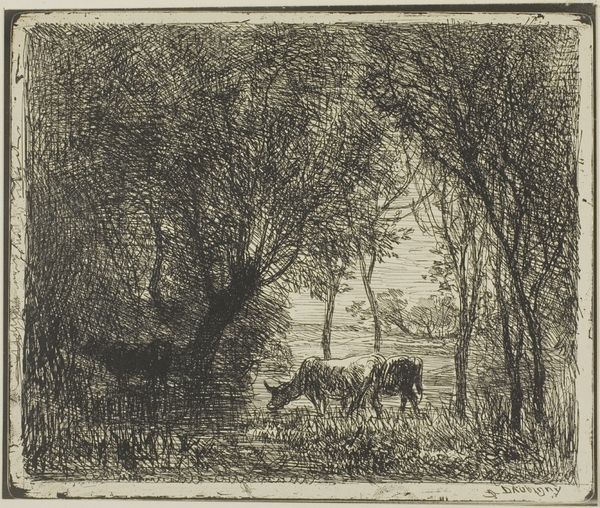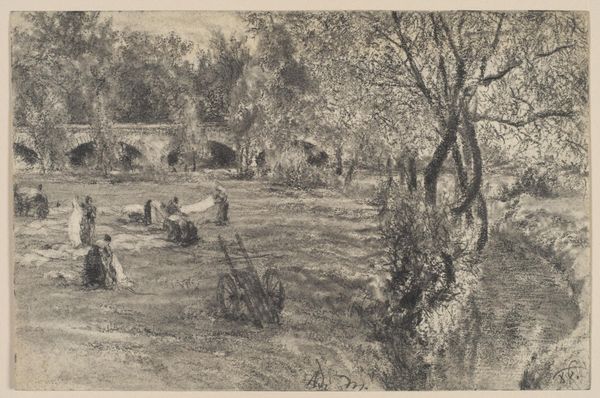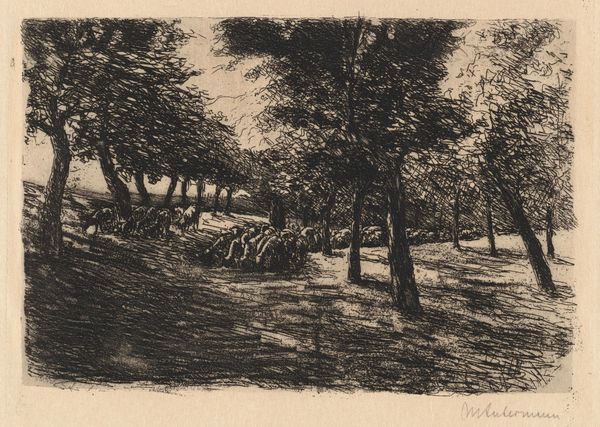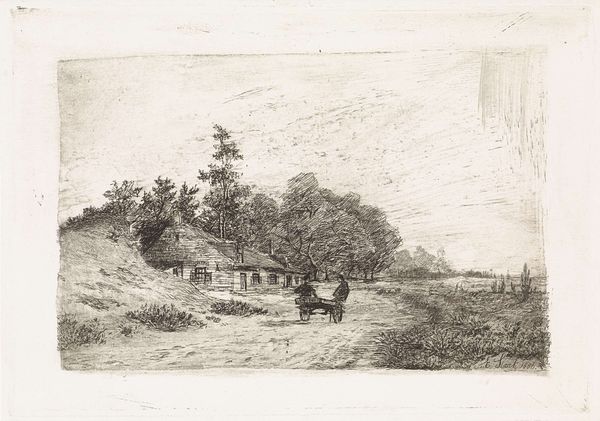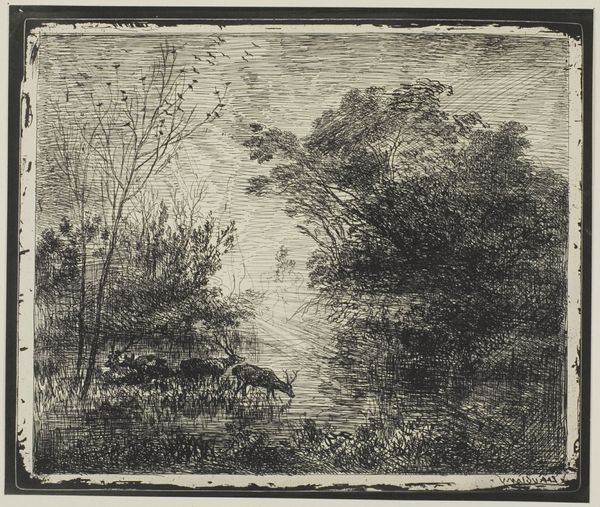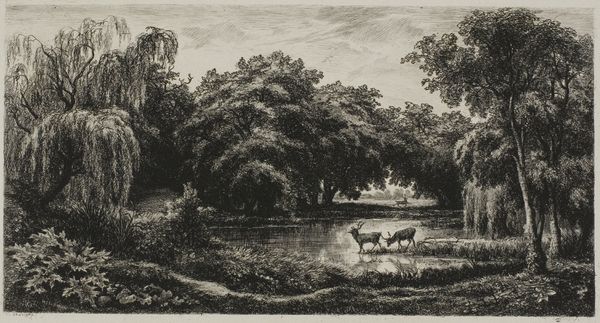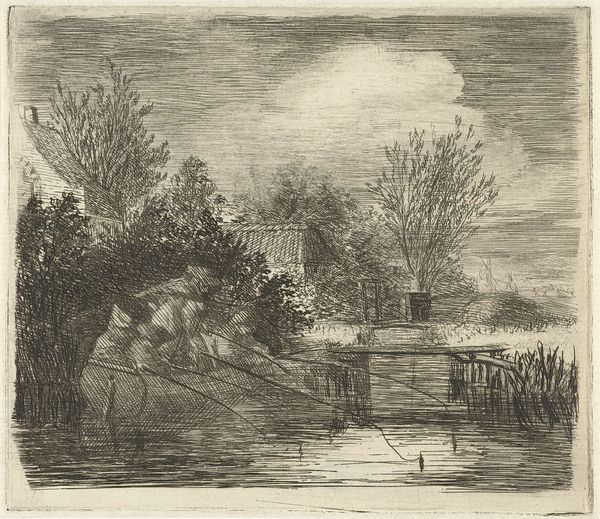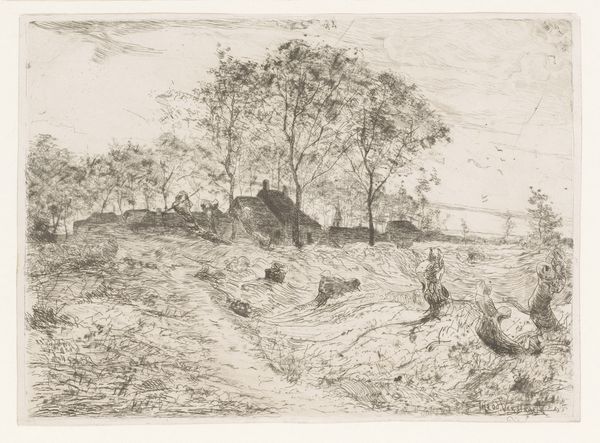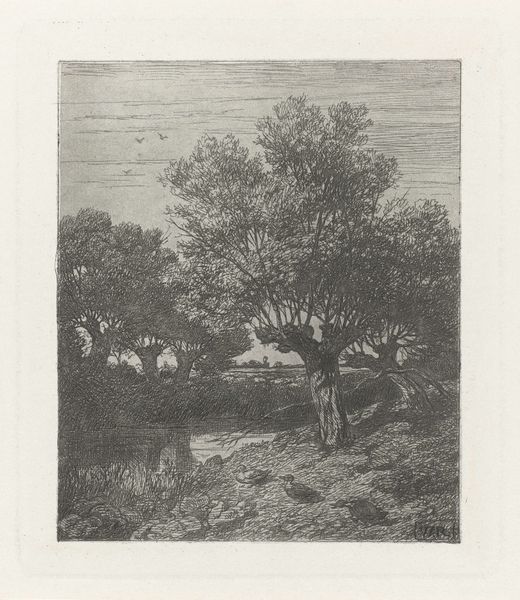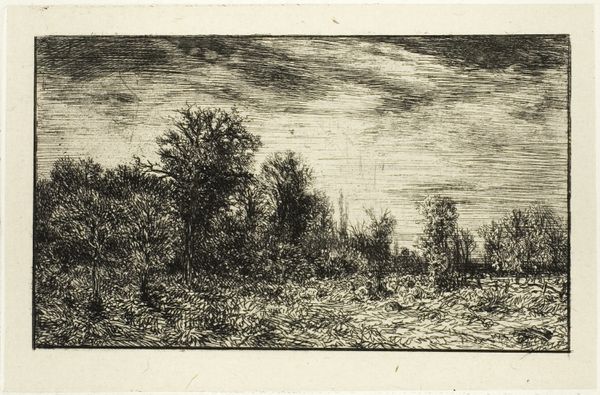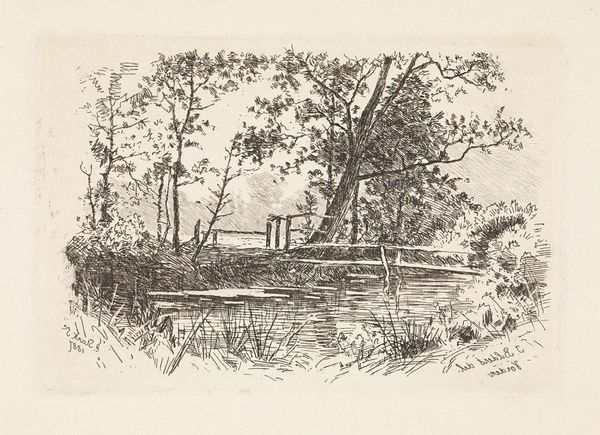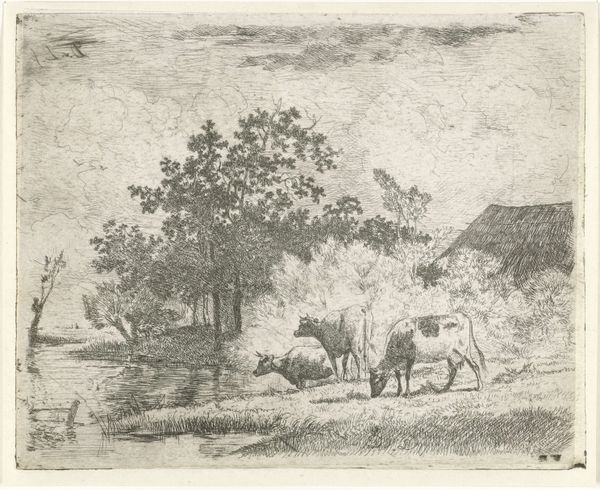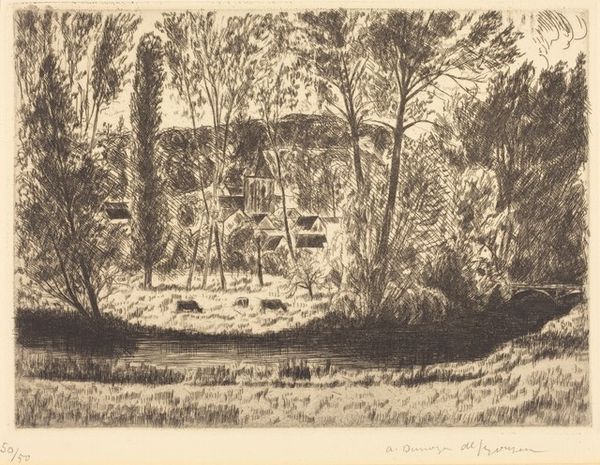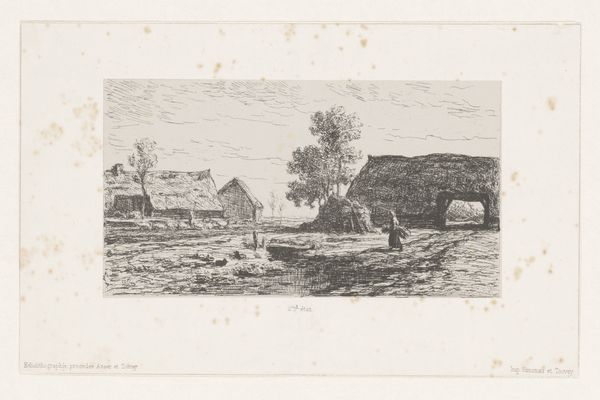
drawing, print, etching, paper
#
drawing
# print
#
etching
#
landscape
#
paper
#
france
#
realism
Dimensions: 103 × 158 mm (image); 120 × 169 mm (plate); 264 × 395 mm (sheet)
Copyright: Public Domain
Curator: This etching from around 1860 by Charles-François Daubigny is called "Pig in an Orchard". It's a deceptively simple scene. Editor: Simple, but… melancholic? There's something about the monochromatic palette and the pig's posture that evokes a feeling of subdued stillness. A landscape weighed down. Curator: Daubigny, known for his contributions to the Realist movement, here demonstrates a move towards capturing authentic rural life through detailed depictions of form and structure. His approach is meticulous—observe the density of lines which he employs to model shadow and depth. It seems less about an objective "reality," though. More about conveying something felt. Editor: You see that tiny house practically swallowed by vegetation? It's wonderfully unnerving. Like something out of a forgotten fairytale, perhaps reflecting broader themes about nature reclaiming what civilization leaves behind? The pig almost seems oblivious, or perhaps resigned to the encroaching wilderness. Curator: Precisely! He was quite innovative, using the etching process in novel ways to create painterly effects. He played with texture and light to elevate everyday scenes—he wasn't just documenting farm animals. Notice how he employs short, broken lines to describe the textures of the foliage in the foreground. It gives everything such a unique tactile quality, you feel like you could almost reach out and feel the grass. Editor: It really does transcend a simple pastoral scene. It invites me to ponder themes of mortality, the brevity of life, or how humans impact the land around us. Perhaps he felt a connection to his subject: Daubigny also etched words "un Cochon de propriétaire qui ne fera de bien qu'après sa mort." Curator: Yes. In this subtle composition, Daubigny prompts reflection through art, leaving one with a gentle, poignant aftertaste of the inherent ephemerality of all living things. Editor: An orchard seen with remarkable pathos.
Comments
No comments
Be the first to comment and join the conversation on the ultimate creative platform.
